Harlan Ellison Interlude
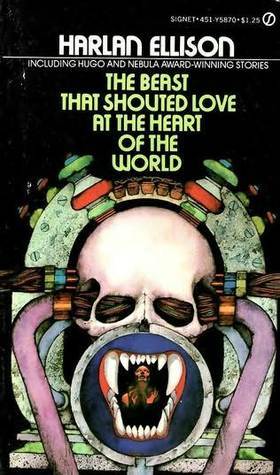
At risk of someone pointing this out, I am aware these parallel world and time travel concepts may be loose derivations from the 1969 Harlan Ellison short story “The Beast that Shouted Love at the Heart of the World.” Compare the title of YU-NO: A Girl Who Chants Love at the Bound of This World.
In his story, Ellison introduces a concept of parallel universes existing in parallel timelines. He describes their positions relative to another plain of being, “the center,” with the word “crosswhen.” Kanno must have liked this idea. However, the “bound of this world” where Yu-no is born is not analogous to the “center” or “heart of the world” Ellison refers to. The bound in YU-NO refers to the edge of Dela Grante, a continent in space in a parallel universe that lacks the infinite cosmic importance of Ellison’s “heart of the world.”
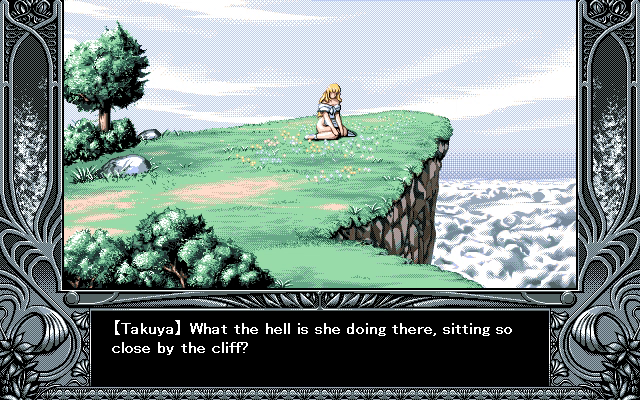
According to Koudai and Eriko in YU-NO, “history” is not a chain of sequential events moving forward in time but rather a “flow of causality” stemming from the original cause, Takuya having sex with Yu-no (during a meeting with Ryuuzouji on the Miutski route, Kanno hilariously rejects the Big Bang theory out of hand—yeah, it’s not that, stupid, it’s Takuya cumming in his daughter). In “The Beast that Shouted Love at the Heart of the World,” a cause (“insanity”) ripples through universes crosswhen the “center” backward and forward through time—“everywhere and everywhen”—in the form of “degenerate force-lines.” Causality transcends spacetime in Ellison’s fiction too.
This reference is cerebral, and there is nothing wrong with copying concepts. But I overstate the connection. I think “この世の果てで恋を唄う少女” are just words that sound cool in a title. Kanno derived them from a slightly relevant piece of fiction to score some big brain points.
Characters
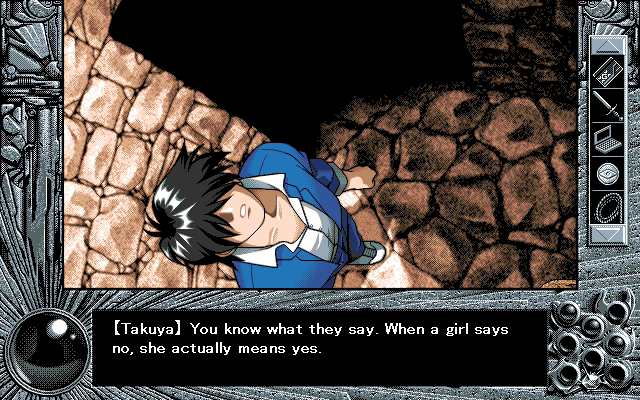
Takuya is the worst kind of character, one loathsome but whom author does not consider loathsome, a clueless clownish sex pest obsessed with fucking his mom (a prominent aspect of his personality on every story route, not only his stepmom’s). His rare occasions of self-clarity may worsen the story because they imply Kanno chose not to do better. Comparing YU-NO’s hair-combed-over-his-eyes loser to other contemporary eroge protagonists, some may contend that Takuya is not a creeper but merely a weirdo. This argument is somewhat undermined by Takuya, while perving around his stepmom’s room, saying, “I’m such a creeper.”
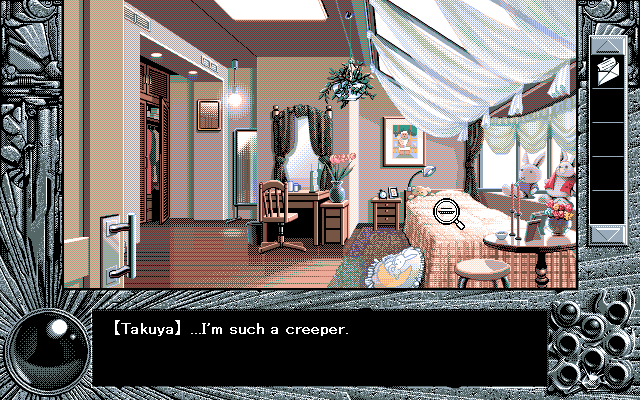
Granted, Takuya displays compassion and decency, showing tenderness to every potential partner except Kaori. He does not judge Kanna for sleeping with so many men (which would be heinous hypocrisy). He prevents Ayumi’s suicide through expressions of his love. Though he too is in pain, he treats Amanda’s wounds. Despite the excessive berth the other characters give the sex offender whose cognitive abilities suggest severe head trauma and despite how oblivious and useless he is, Takuya can be funny and in some ways is more respectful to women, if you can believe it, than other eroge protagonists of the time. He does not, for example, constantly say words like “bitch” or “slut,” though whether that reflects translation choices or the original script I do not know. His more positive moments do not come off as adding complexity to Takuya’s character, however, but instead just seem like inconsistent writing.
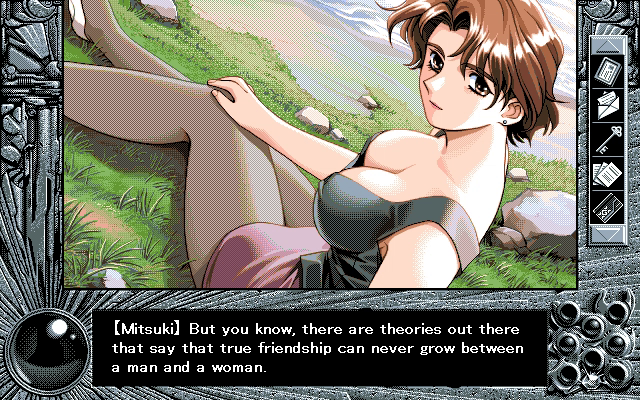
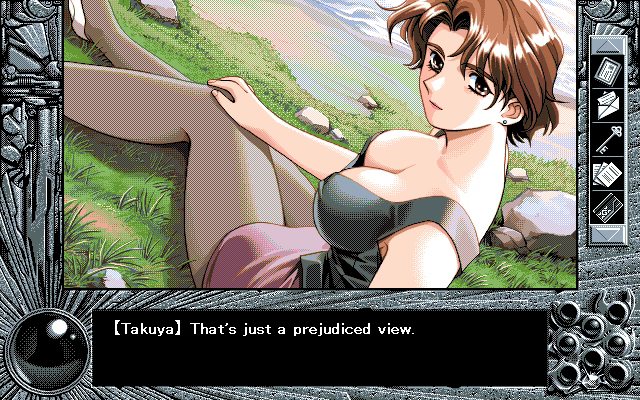

Takuya fucks literally every named woman in the entire script, including both of his daughters, with the exceptions of Illia (who dies first), Ume (who is OLD so her body is YUCKY), and the women who are already dead (Kaytia, Imagawa, and Grantia). Guess Mitsuki is right that men and women cannot just be friends.